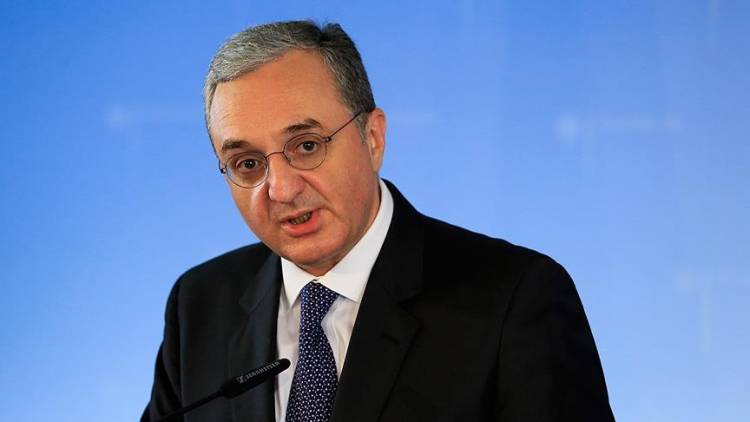The United Nations has grown from 51 independent nations upon its founding to an impressive 193 member countries—a great step forward for self-determination. But on occasion, it has also unintentionally validated, through paralysis and inaction, authoritarian states persecuting ethnic minorities.
That's precisely what is happening right now in a self-governing corner of Azerbaijan widely known as Nagorno Karabakh, which is called Artsakh by its Armenian population. UN indifference to the month-old blockade of the 120,000 people there will send the message that the organization has cast aside its very raison-d'etre.
After all, the fundamental purpose of the UN is to support the right of all peoples to express their will in peace. Many multi-ethnic nations have done so, living in harmony and democracy. But others, often relying on distorted versions of "history," have built environments of discrimination, intolerance, and violence. If the UN is serious about its responsibility to promote freedom and prevent atrocity, it cannot allow suppression of freedom just because it occurs within the boundaries of a member state.
In the 1990s and early 2000s, Slobodan Milosevic of Serbia, B.J. Habibie of Indonesia and Omar al-Bashir of Sudan all leveraged their countries' status as sovereign nations in the UN—a so-called "thick curtain of sovereignty—to act with impunity.
These leaders contradicted proven facts, assuring the UN secretary-general and international community all was fine back at home. They manipulated UN member states, including the Permanent 5 on the Security Council, appealing to narrow interests to prevent action. Others followed in their footsteps. For such despots, the UN has sometimes served as an unwitting shield for gross violations of human rights. For the peoples of Kosovo, East Timor and Darfur, among others, this resulted in massive tragedy.
For decades, the people of Artsakh have struggled for freedom against the dictatorship of Azerbaijan—one with a staggering record of human rights abuses and oppression at home. Meanwhile, Artsakh has demonstrated a capacity to self-govern in democratic fashion, with full respect for people's rights and freedoms.
The autocrats in Baku responded by systematically manipulating UN members internationally and their own people at home. They've utilized propaganda, creating a caricature of Armenians as the enemy, leading to international inaction and even some support for their totalitarian regime.
Since the resumption of aggression against Artsakh in 2020, thousands of Armenians have been murdered and mutilated, and tens of thousands forcefully displaced. And now, since Dec. 12, the enclave has been blockaded. Women, children, and the elderly are trapped in freezing temperatures without food, medicine, and other basic supplies. There have been intermittent cutoffs of gas and electricity. It has created a genuine humanitarian crisis.
The Azeri sense of impunity and the hostilities this has driven—recorded also by the UN International Court of Justice—are potential precursors of far worse. The dangers are heightened by the absence of international eyes and ears in Artsakh. The Genocide Prevention Network has warned that it is an attempt to "ethnically cleanse and drive Armenians out of Artsakh."
Back in the 1990s, former UN Secretary-General Kofi Annan demonstrated courage and determination in forcefully persuading the international community to act decisively in the face of extreme suffering and violence. He insisted on the primacy of human security and protecting the people, in whose name the UN Charter was written.
"Strictly traditional notions of sovereignty can no longer do justice to the aspirations of peoples everywhere to attain their fundamental freedoms," he told the UN General Assembly in September 1999.
The UN has since revamped itself to create an elaborate system of protection and prevention capabilities, from early warning and action to preventive diplomacy, peace building and peacekeeping. Armenia has consistently contributed to the endeavor—specifically to genocide prevention efforts.
The deteriorating situation in Artsakh provides a classic early warning sign of impending humanitarian disaster and atrocities. If not acted upon, what was the point of the UN reforms? Both-sidesism—the false but diplomatic-sounding assignation of equal blame—and the muddle of narrow and conflicting interests do nothing for the people of Artsakh. Even more importantly, they send a frightening message to people everywhere—and are a green light to despots.
If not acted upon, what was the point of the UN reforms? Both-sidesism—the false but diplomatic-sounding assignation of equal blame—and the muddle of narrow and conflicting interests do nothing for the people of Artsakh. Even more importantly, they send a frightening message to people everywhere—and are a green light to despots.
As Armenia's former Ambassador to the UN, I am pained by events on the ground—and also concerned about the credibility and future of the organization.
It's time for leadership from the UN, or the afflicted will conclude that its commitments are empty. Such a betrayal, such acquiescence to barbarity, would be outrageous. The people of Artsakh deserve the same self-determination and freedom from strife as the rest of us.
The UN must understand this before it's too late.
Zohrab Mnatsakanyan is the former minister of foreign affairs of Armenia and Armenia's former ambassador to the United Nations.
The views expressed in this article are the writer's own.

